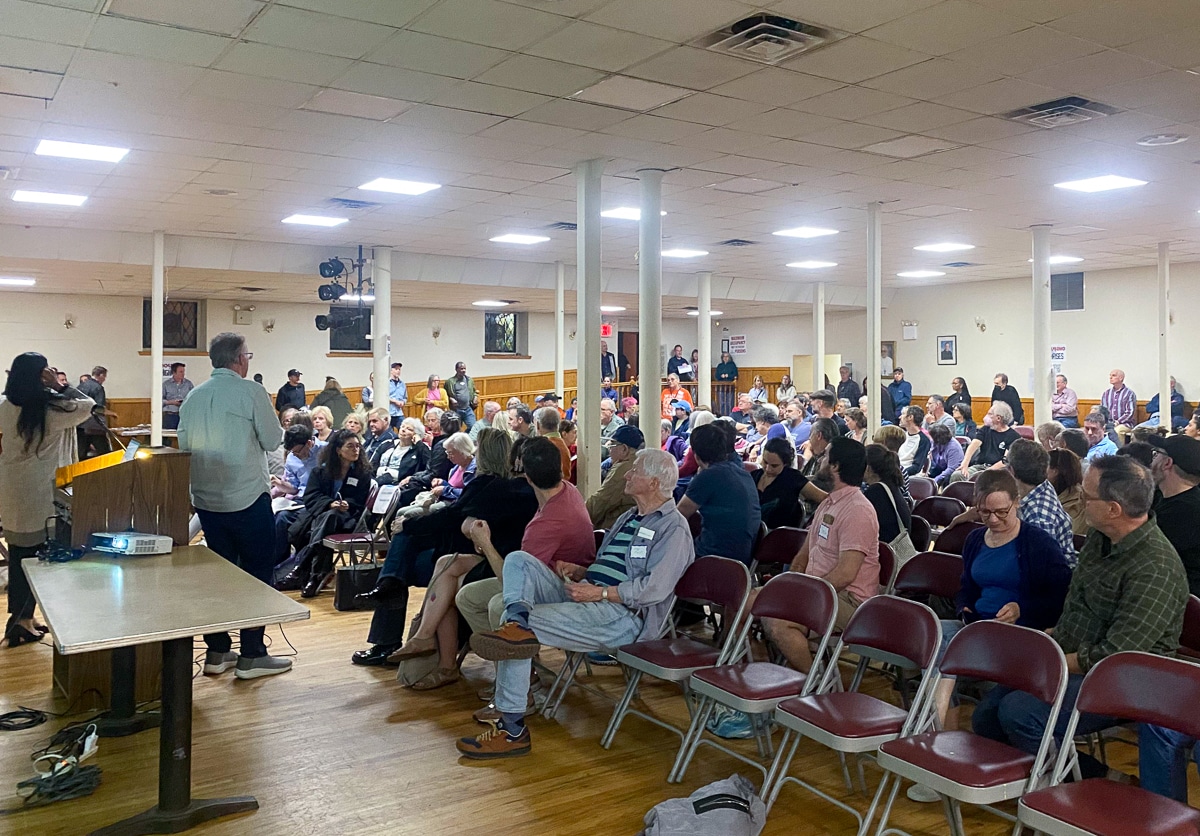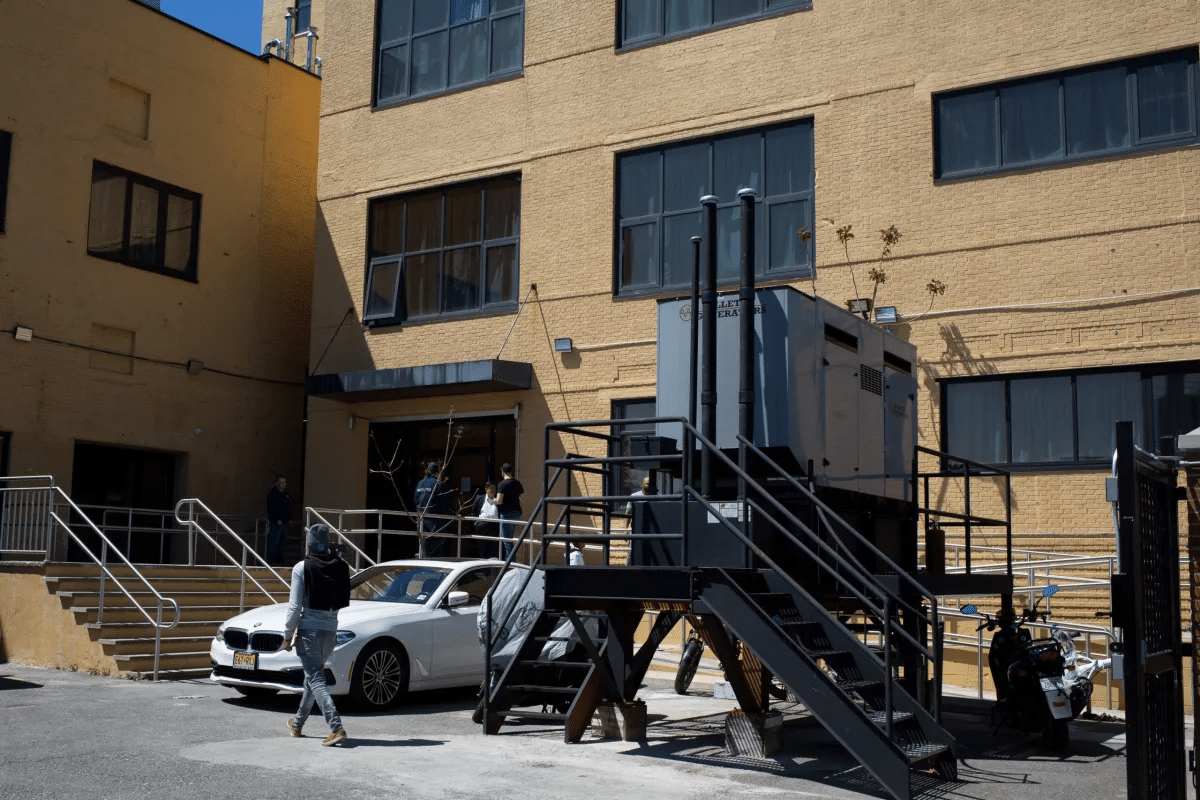City To Get Tough On Negligent Landlords
While we’re not so sure about its constitutionality, a new bill to be proposed by the Bloomberg administration would give the city more power to take proactive measures to fix up derelict buildings whose landlords who fail conform to certain safety standards. Under the plan, HPD could go into a building with a minimum of…

While we’re not so sure about its constitutionality, a new bill to be proposed by the Bloomberg administration would give the city more power to take proactive measures to fix up derelict buildings whose landlords who fail conform to certain safety standards. Under the plan, HPD could go into a building with a minimum of 27 uncorrected code violations and redo everything from roofs to entire electrical systems and then stick the negligent landlords with the bill; if the owner didn’t pay up, the city would put a lien on the building. The goal is to restore the ailing portion of the housing stock at a time when demand for housing in the city has never been stronger; the goal is 200 buildings a year for five years. Sounds like a good move to us, though if they really wanted to fix the problem they’d get rid of all rent controls.
City to Seek Broader Power Over Buildings [NY Times]
Photo by humain









Sylvia – you might be interested to know that the people who are hurt most by rent control/stabilization laws are immigrants and newcomers to this city. That’s because they didn’t get in on a sweet deal 20 years ago or inherit a lease. The housing stock in this city is artificially constricted as rent control tenants hoard their apartments. Rent control laws do not help the guy delivering your takeout.
If you folks saw how some of my rent stabilized and rent controled tenants lived, you’d be sickened. The Con-Ed guy refuses to enter one of their apartments because it smells so bad.
Without these crazy rent laws, a landlord like myself wouldn’t have to put up with tenants that lived like pigs.
I’m supporting this guy since he’s paying $175/mo rent and the other tenants on his floor are unhappy because of the putrid stench emenating from his apartment. I could go on and on and on. . .
I should take some photos and post them in the forum. You folks would be amazed how some people live.
section 8 subsidies generally apply to people who are paying more than 30% of their income (below a certain threshhold) for rent. since nyc’s rent regulated tenants are already paying above that, how would expanding section 8 in any way help the cause of affordable housing in NYC?
Sylvia said:
“they wouldn’t be able to afford to stay in the city at all if they didn’t have rent stabilization, what with the new baby and the husband’s low-paying non-profit job and all.”
That doesn’t mean they benefit any more from the current rent control system, than they would from some form of low cost housing that’s need-based. Other cities do things like require developers of large apartment buildings to have a certain number of Section 8 apartments, based on the size of the development. This way, it’s truly need-based, and yes the landlord gets to decide who gets the Section 8 apartments and that’s a good thing. Who wants as their neighbor some dude who inherited an apartment, and didn’t even go through any kind of application or interview process. No wonder people have so many problems with neighbors in this city.
Eryximachus–
Re: “You can never pass the cost of improvements on to existing tenants unless they agree to it in writing.” In some instances you can. Landlords can apply for Major Capital Improvements based on new work done to common areas (new doors to the building, new roof, new mailboxes) They can’t be used for repairs to existing equipment, but say the landlord ripped that facade off the building and wanted to install a new one, they could feasibly raise the rent to offset the cost. A charge per room (2 rooms = 2x the charge, 3 rooms = 3x the charge, etc) is applied to each apartment and the rent increases by this amount monthly.
Eryximachus and Jake, how about I leave you two to duke it out as to which one of you is more victimized by the rent stabilization laws?
I’m going to go enjoy a margarita at my friends'(affordable) rent stabilized apartment. They’re both college-educated, by the way, but they wouldn’t be able to afford to stay in the city at all if they didn’t have rent stabilization, what with the new baby and the husband’s low-paying non-profit job and all.
But hey, I’m sure the city doesn’t need college-educated non-profit workers or new babies. Or margaritas, for that matter. As long as landlords’ and other tenants’ “right” to hang on to every last cent thay can get their hands on is protected, I’m sure we’ll do just fine.
David, you’re crazy. Rent Stabilization doesn’t matter in SOME neighborhoods in the boroughs because demand is low. Think East New York. You aren’t going to get 10% increases a year. People would simply move.
BUT, the landlord does not HAVE to increase rents. He can still register prospective rental increases, and state in the rent stabilized lease that the tenant is receiving a preferential rent. When and if the neighborhood gets hot, the landlord can legally raise the rent all the way up to the maximum legal rent.
Institutional investers don’t care about rent stabilization because they buy real estate investments for the low-risk income. This is why they love pseudo-housing projects like Starett City. They could care less what the place looks like, as long as their income remains steady.
The truth is the positive leasehold position enjoyed by rent stabilized tenants encourages them to pay their rent and not complain.
Ultimately however, rent stabilization is not that bad for landlords OR tenants who have such apartments.
It’s bad for the rest of us who aren’t lucky enough to score a RS apartment. That is the argument here. Landlord’s get their money, and rent stabilized tenants get their cheap rent. The rest of us pay for it.
Herks, 2.12 here. You missed my point. As per a previous exchange, I was asking 1.37 whether or not there might be pent-up demand for rental units in NYC, and giving possible examples of that pent-up demand (college kids, new residents, etc). In furtherance of that, I was simply pointing out that I myself wouldn’t mind moving back to Manhattan if I could afford it. What’s more, my original post on the subject is at 1.24 pm, and as you’ll see, I’m not in either camp on this issue.
Anon 12:49
In regards to increases, that is not how it works in NYC. You can never pass the cost of improvements on to existing tenants unless they agree to it in writing. When a tenant vacates you can renovate a rent stabilized unit and pass on 1/40 of the cost to the NEW tenant, up to a reasonable amount.
You cannot under any circumstances pass on improvements to common areas or the exterior facade to rent stabilized units.
If a facade is crumbling on a building that is rent stabilized, no landlord could ever hope to repair it. They simply rip it off and leave the bricks to the elements.
An Sylvia, I never said to abolish laws – there needs to be a happy medium between pure anarchy, and the general lawlessness of a society overcome with laws. By the way, this is a major theory as to why the Roman Republic collapsed, and was believed by many as a justification for absolute rule. It was also Jesus’ criticism of Jewish law. So you have some of the greatest history books ever written, Gibbon’s Rise and Fall of the Roman Empire comes to mind, and the freakin’ New Testament.
Laws are good. That doesn’t mean we should have millions of pages of them.